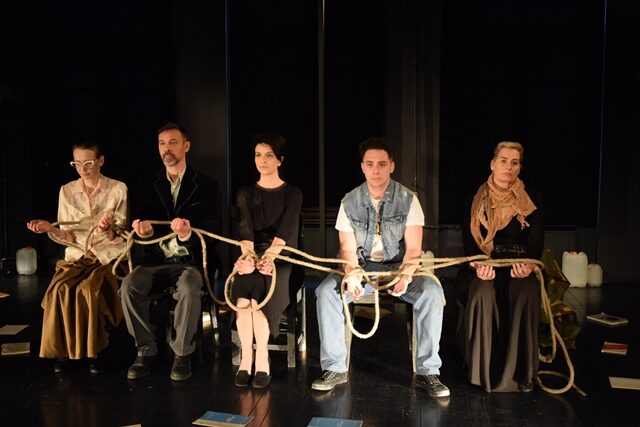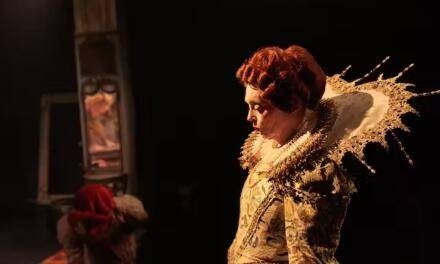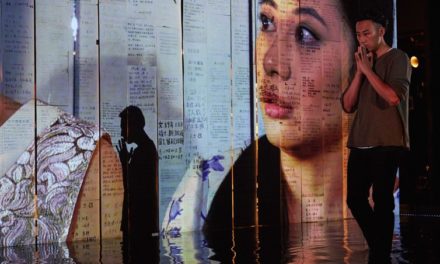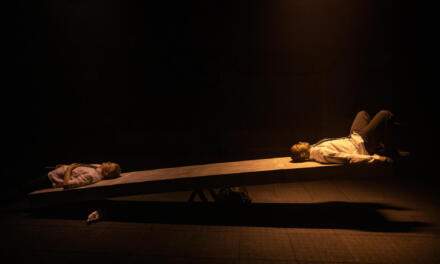“Who was human before the war, remained so”, says one of the actors in the beginning of the play Sedam dana kasnije (Seven Days Later), which ran in January at Sarajevo’s Narodno pozorište (People’s Theatre).
The book Dobri ljudi u vremenu zla (Good People in Evil Times) by Svetlana Broz (the granddaughter of Josip Broz Tito) is the basis for this play. It premiered in April 2019 on En Face, the small stage at Narodno pozorište. The play is adapted and directed by the famous Bosnian writer and director Gradimir Gojer. This is Gojer’s second time directing stories from Dobri ljudi u vremenima zla, which is a testament to how much Gojer thinks this play represents Sarajevo and its theatre in these times.
For his second dramatization of Dobri ljudi…, Gojer chose six different stories from the book to adapt, together with poems by Izet Sarajlić and Velimir Milošević. The stories Gojer brings to life were originally heard and written down by Svetlana Broz when she first arrived in Sarajevo as a young cardiologist at the beginning of the war, almost thirty years ago.
Members of three ethnicities (Bosnian, Croat, and Serbian) told their stories to Broz with emotion, but without any resentment. These people helped their neighbors, friends, lovers, and others whom the masters of war wanted to turn into their enemies, no matter what. Their stories resurrect hope for human kindness and dignity – which we desperately need today. Gojer brilliantly recognizes that need by creating a piece of docu-theatre that viscerally reminds the audience of the atrocities of war. He believes that in times soaked with primitivism and where there’s no serious political discourse it is ideal for good people to thrive.
Along with directing and adapting the play, Gojer handles the music and art direction. On the small stage, the audience can see just five empty chairs and a rope on the floor. Around those chairs and the rope, in less than one hour, six dramatic stories take place. The rope is there to bond, to connect and to divide, and to serve as a metaphor of prison, but also of stories. The minimalist scenography, defined within the confined space of the small stage, puts the actors in the foreground.
They take advantage of these restrictions in the best possible way. The audience is led through the play by actress Mediha Musliović, who represents Broz. As the actors share their emotional testimonials, she is in the dark, silently listening, just as the real Svetlana Broz did almost three decades ago. Actors Mediha Musliović, Emina Muftić, Riad Ljutović, Amina Begović, Belma Salkunić, and Dino Sarija tell the audience how to stay human even in times of evil. Their courageous acting, devoid of sentimentality and melodrama, is effective in expressing the truth of the six stories.
The play is Sarajevan, but also global. It says so much about everyone in times of evil and in times of good. It shows us what we’re like now, but also what we can become in the future.
This post was written by the author in their personal capacity.The opinions expressed in this article are the author’s own and do not reflect the view of The Theatre Times, their staff or collaborators.
This post was written by Mila Bulimbasic Botteri.
The views expressed here belong to the author and do not necessarily reflect our views and opinions.


















